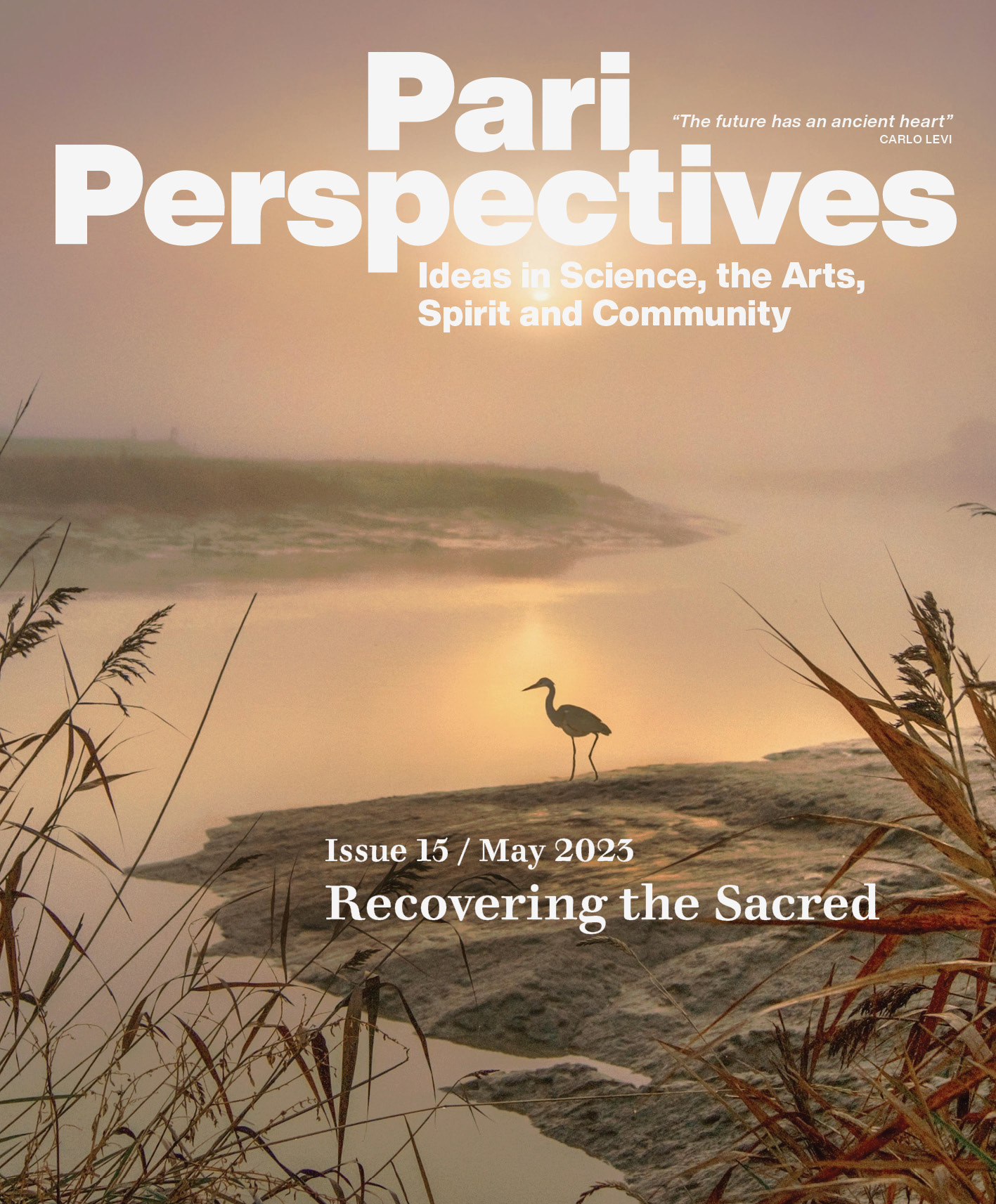Your cart is currently empty!
Pari Perspectives 15
May 2023
Recovering the Sacred
Message from John Pickering,
curator of the ‘Recovering the Sacred’ online series
The ‘Recovering the Sacred’ series was prompted by Maureen’s remark that ‘Pari has done well by Science but somehow the Sacred seems to slip through the cracks.’ Pari means different things to different people, but one common theme is likely to be that its alchemical magic enriches how we see the world and expands our ideas about how to live more helpfully in it.
Did the series fit with that theme? Very well, in intention at least. It set out a rich banquet of radical ideas about what the world we encounter is really like. The series hung together and reflected the publicity material quite well, especially ‘… awareness of how precious our living world is and of how inter-dependent we are with it.’
It’s less clear whether it actually offered much that would ‘… help us to keep hope alive and decide what to do for the best in our challenging times.’ It seemed to be that it was up to everyone to re-discover the sacred in their own way. Perhaps this was about right, since anything else would have been a bit prescriptive.
Some sessions were lecture like while others were more experiential. A good mix perhaps, giving contrasting perspectives and leaving people with some bright images to balance Iain McGilchrist’s dark opening remarks about how we seem to be collectively committing suicide.
The scheduling was determined by the dates presenters could make, but by chance the resulting sequence was good. Iain got us off to a splendid, if rather sobering, start while David Lorimer and Jeremy Lent drew things to a close in a way that offered some hope and a practical framework for action.
The sessions were on what could be called a spectrum of conventional acceptability. At the acceptable end would be what Iain and Jeremy had to offer, while other sessions touched on topics might be unacceptable in more conventional contexts. Two examples here could be the sessions from Peter Reason and Anne Baring.
Peter gave a beautiful account of his way of honouring the living beings around a stretch of river near where he lives, especially the sound and sight of birds. Just as he was doing that one day, two swans appeared, which he took to be an example of synchronicity and not mere coincidence. Here a boundary comes in view between familiar nature writing and magical thinking. Likewise, Anne’s session began with an authoritative account of how the feminine had been marginalised in the West and then progressed through increasingly arcane matters, such as shamanistic ecotherapy practices and psychedelic revelations of the ‘… Divine Oneness and the Diamond Luminosity that lies outside cyclic existence.’ The boundary of acceptability again comes into view. But acceptable to whom and how important is that in any case? Does Pari want to be acceptable to the conventional consensus or to offer a platform for ideas that radically depart from it? Departing too far may lessen Pari’s credibility, not departing far enough will lessen its original raison d’etre.
In the event, the mix in the series was about right. If there were things that bordered on the magical and the occult, they were balanced by informed explorations of growing points in science and some complementary concepts from non-Western cultures.
Pari combines adventurous explorations of leading-edge science with affirmations of sacredness, informed by spiritual traditions old and new. It’s a balancing act, and ‘Recovering the Sacred’ performed it well enough.
John Pickering
The journal is available to everyone who has become a Friend of the Pari Center: www.paricenter.com/membership

